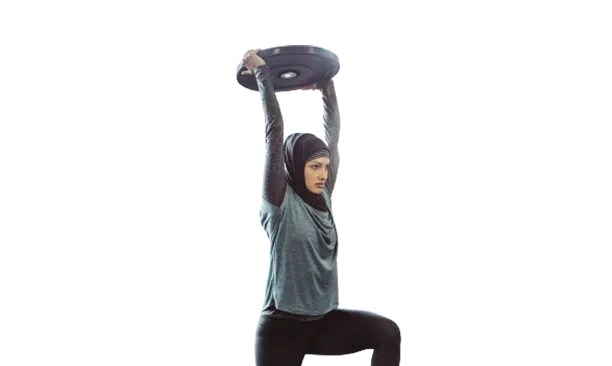
Healthy eating doesn’t have to be difficult. Dana Al Shaka’a, Clinical Dietician, American Hospital Dubai, helps you stay on track With the changing timings of meals during Ramadan and the presence of a lot of fried appetisers and various sweets on the table, some find it difficult to control calories not to mention the feeling of bloating and indigestion.
To maintain a healthy diet and a better feeling during the holy month you have to make healthy choices.
Try to start reducing caffeinated beverages before the beginning of the month so as not to suffer from headaches in the first days of Ramadan. Suhour is a very important meal as it provides you with energy for a longer period and prevents extreme thirst at the beginning of the day if you choose the right foods.
Foods that contain fibre such as bran or oatmeal, as well as vegetables and fruits, give a feeling of fullness for a longer period. Oats and some fruits such as bananas and dates are also sources of potassium, which help to reduce the feeling of thirst and keep the body hydrated for longer.
In addition, the meal should include a source of protein such as milk, eggs, beans or cheese that is low in fat and salt. Avoid tea and coffee at the time of suhour because it can make the body lose a lot of fluids.
Iftar is no less important than suhour; as it is the main meal of Ramadan. One of the most important tips for iftar is to eat a balanced meal and avoid fried/oily foods and drinks that contain a high amount of sugar.
Start your meal with water, a few dates and follow with a soup or a laban. Continue the meal with lots of vegetables, a source of protein, and a moderate amount of carbohydrates.
It is also possible to divide the meal to smaller servings eaten over intervals to avoid discomfort. Drinking enough water(1.5-2 litres) may be difficult sometimes for lack of time, but do not drink a large amount of water with food. Drink water gradually and keep away from juices when you feel thirsty.
Herbal tea or any drink that does not contain caffeine and sugar is a good source of fluids as well. Physical activity is an essential part of a healthy lifestyle, so we must continue to exercise in Ramadan.
Do not stop thinking that the body does not have enough energy. Exercise during fasting stimulates the body to burn fat and raise the level of mental activity. Recommended sports are brisk walking, bike riding, and moderate exercise at the gym.
Stay away from high-intensity exercises that last longer than an hour before iftar because it increases the heart rate and may leadto fatigue.
One of the best times for exercise is the hour before iftar, where the time of the meal is not far from the time of the workout. It’s also ideal to exercise after Taraweeh prayers, when the body has recharged its energy after iftar.
Suhour is a very important meal as it provides you with energy for a longer period.”
Patient Experience